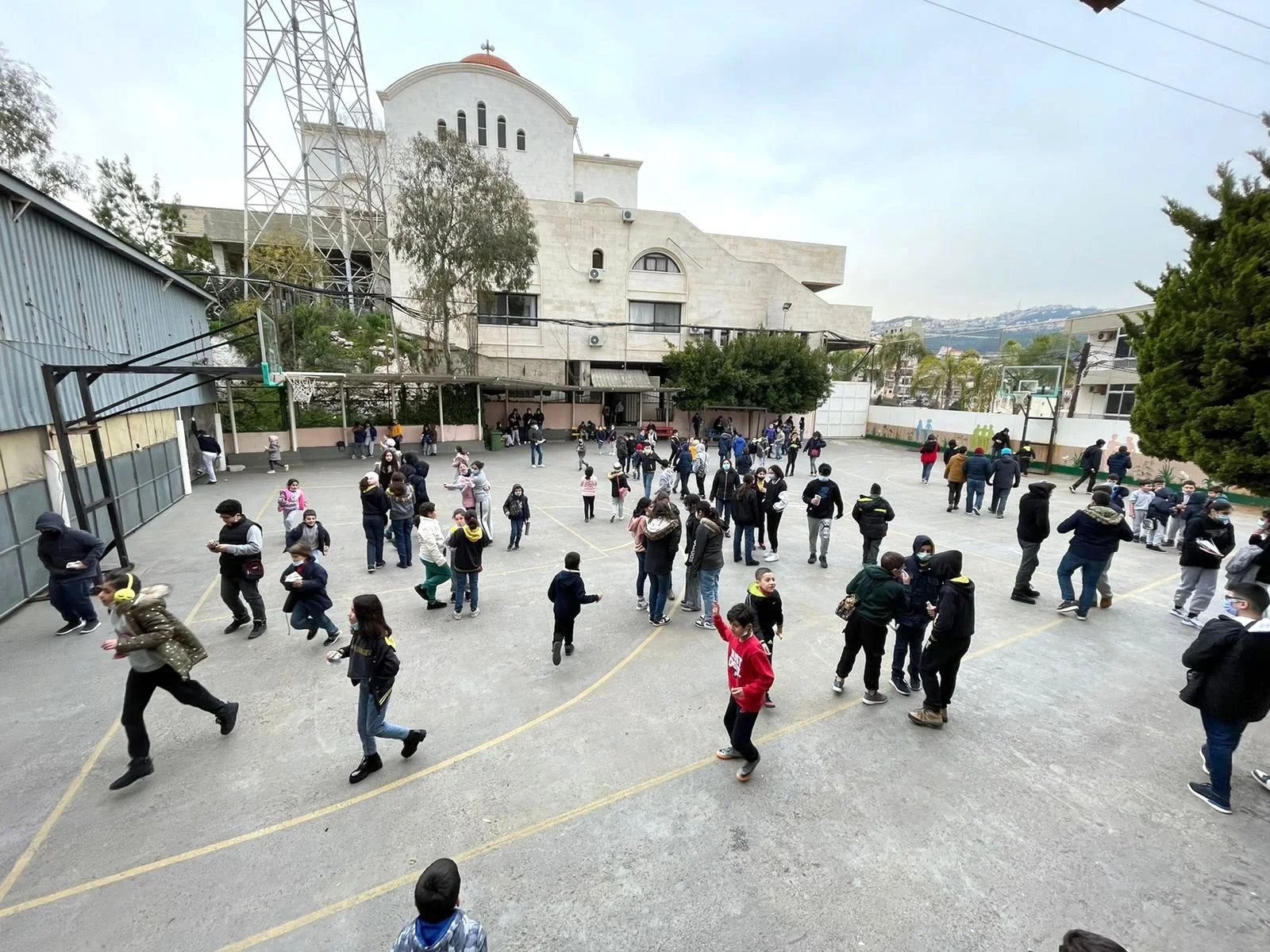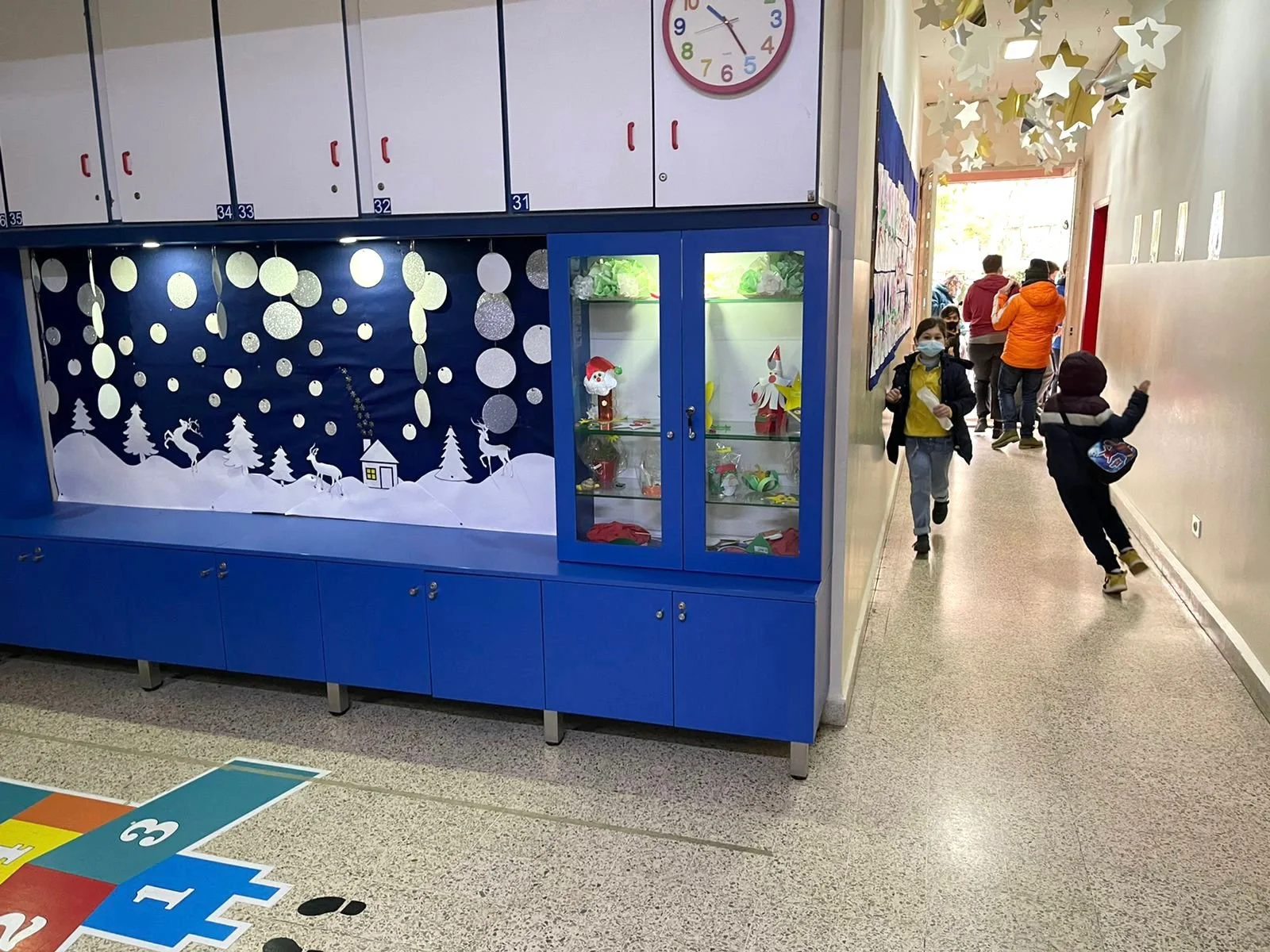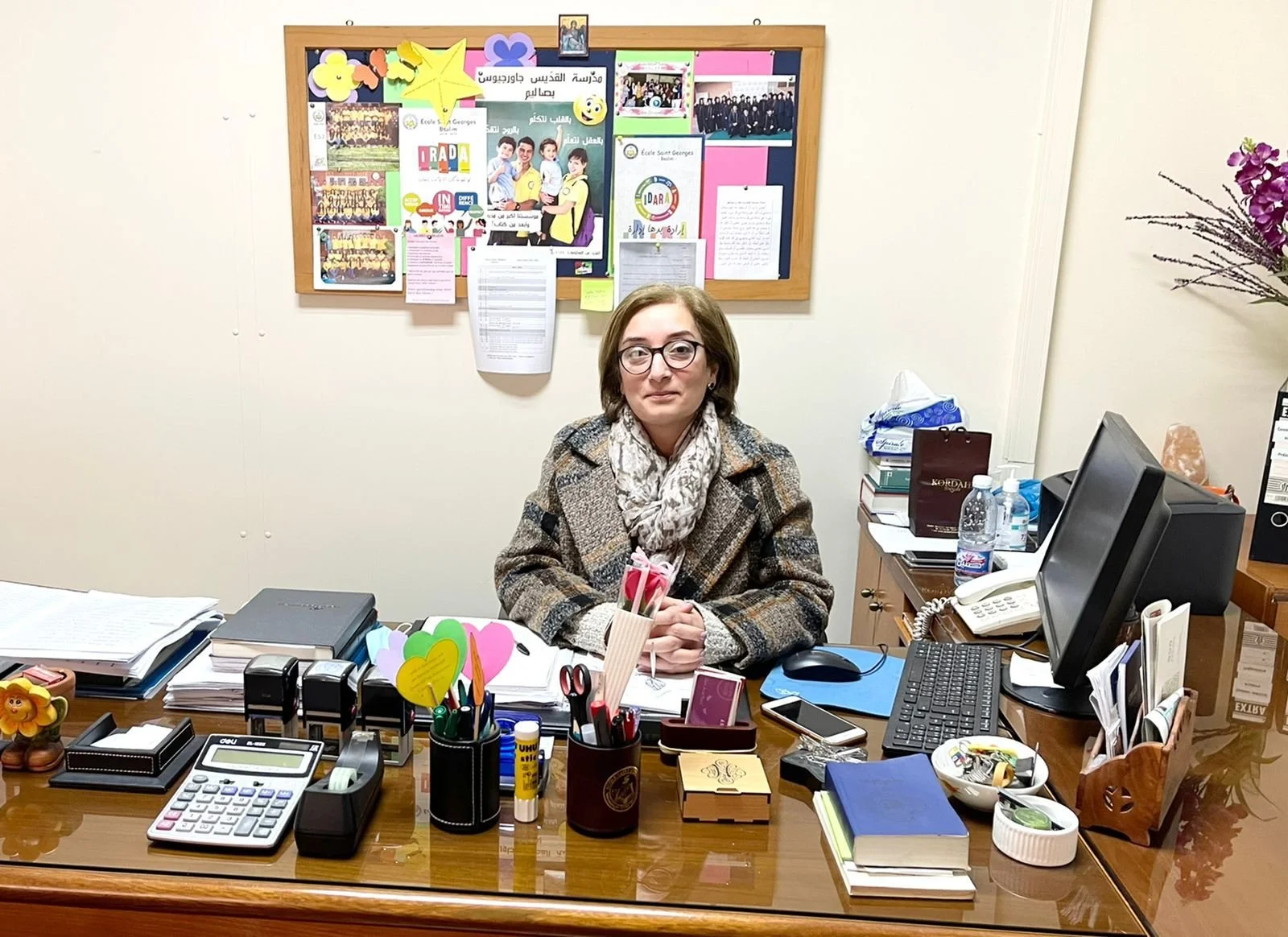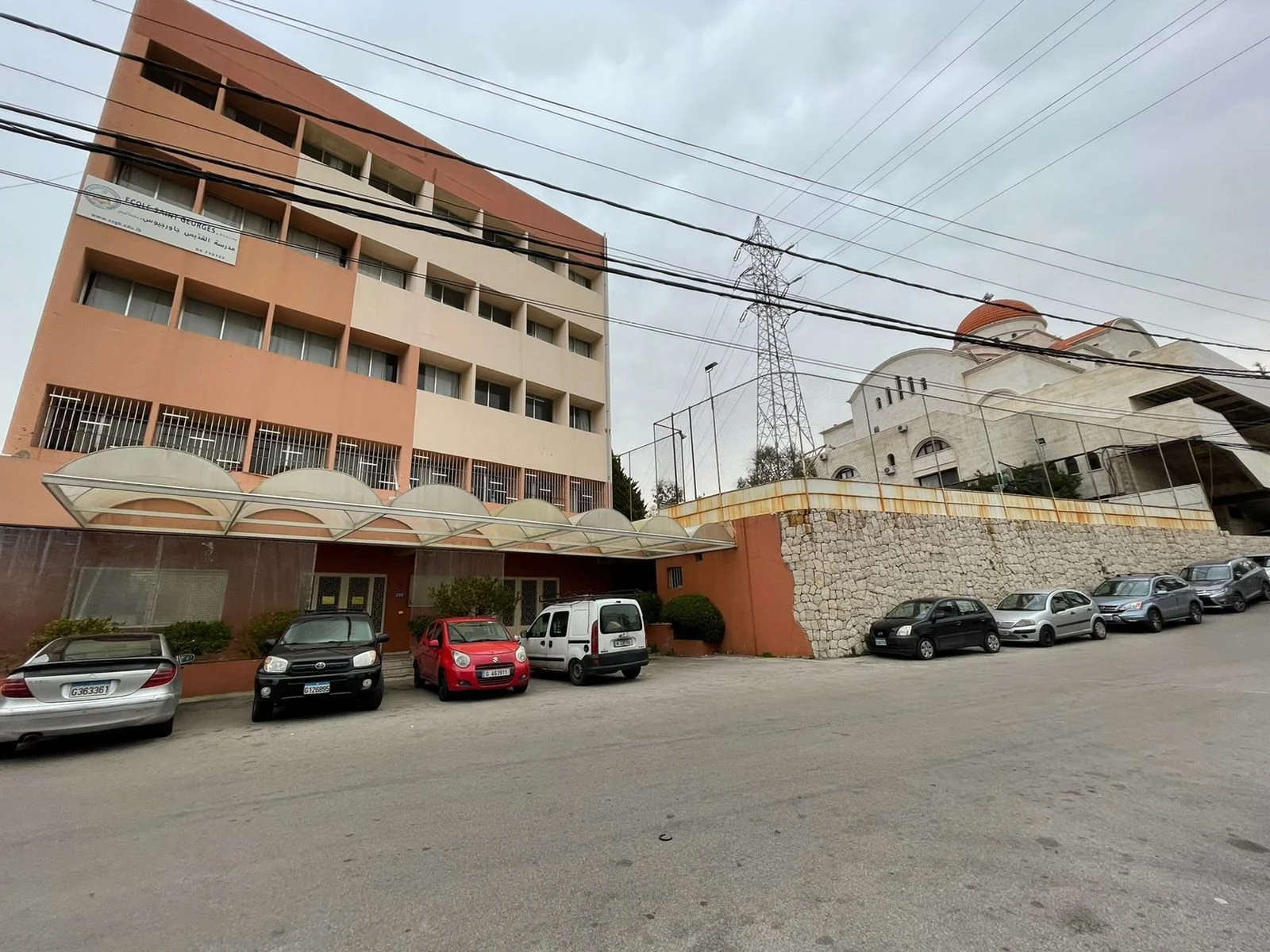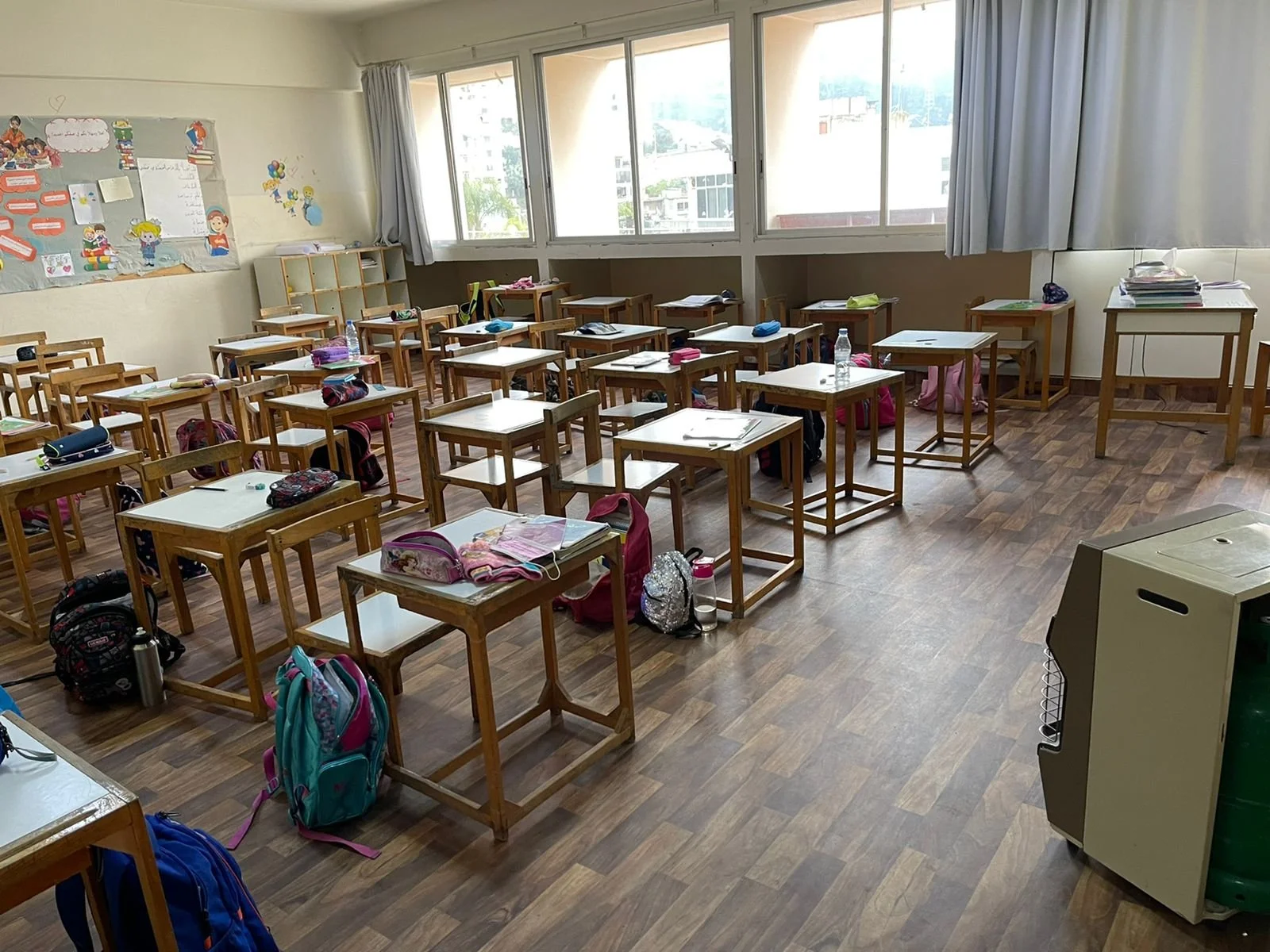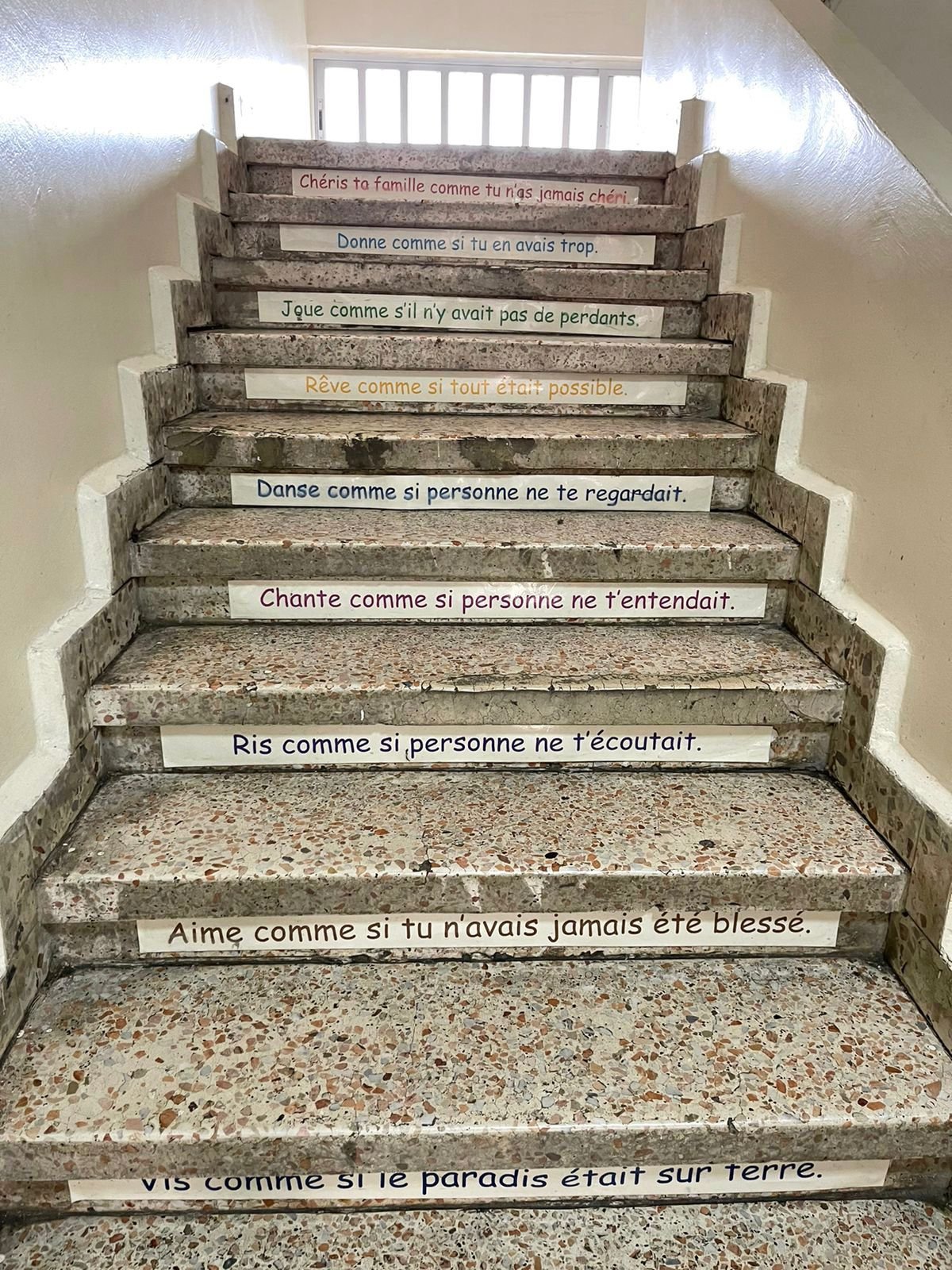The Education Sector in Lebanon is Dying
Saint Georges’ School Bsalim: A Model of the Struggle of Lebanese Schools
Saint Georges’ School, Bsalim
Report and Photography by Elia Nasrallah
Turn to the abyss! These words were said years ago about a sector considered one of the most crucial basic facilities for building societies. The Lebanese education sector has always formed a major lifeline and has been a factor for prosperity and progress, but today it is reaching rock bottom. This is a bitter reality that the educational institutions in the Middle East must now faceat the ional, especially following the outbreak of the economic and cost-of-living crises in the midst of the dangerous health conditions that were manifested by the Covid-19 pandemic.
The education sector is breathing its last breath, and students are the first victims of this bitter reality. This is said without dismissing the negative effects that have cast their shadows on parents and educational staff as well. However, the students’ situation is alarming, especially since many of them were forced to sacrifice their education and resort to work in order to help support their families. This is in addition to the fact that some of them were forced into early marriages, were subjected to violence, or even fell victim to a low level of education and poor literacy.
The available numbers and statistics in this context declare a state of emergency! The education sector in the Middle East is bleeding profusely, and Lebanon is in the eye of this storm.
Worrying Numbers
Due to the harsh economic conditions, the World Bank has recorded in a report about the 2020-2021 academic year the transition of approximately 55000 students from public schools to private schools. According to the Center for Lebanese Studies, the rates of early school leaving have risen dramatically due to the quarantine and lockdown imposed by the COVID-19 pandemic, as well as due to the extreme poverty imposed by the low-income of several families.
Saint Georges’ School, Bsalim
UNICEF sounded the alarm when it reported in a recent study that 3 out of 10 of the Lebanese youth have dropped out of their education and 4 out of 10 have reduced their spending on education to purchase essential goods. UNICEF has also pointed out that approximately 13% of families have forced their children to work in order to help provide their daily necessities.
Despite this threat to education and the failure to implement a national recovery plan, the resources required for the education sector in Lebanon remain insufficient according to the Center for Lebanese Studies. In 2020 for example, less than 2% of Lebanon’s GDP was spent on education and to add insult to injury, this is far lower than the minimum rate as recommended by UNESCO and the World Bank which ranges from 4% to 6%.
On the other hand, several regional and international initiatives have sought to rescue Lebanon’s education sector but these have proven insufficient. The Center for Lebanese Studies has shone a light in one of its publications on the great disparity between the actual needs of the educational sector and the aid it receives from donors.
Since its founding, the Middle East Council of Churches has worked to preserve the dignity of children and maintain their rights through different programs that seek to assist and support them on various levels and especially in terms of their educational attainment in the various countries of the Middle East.
With the exacerbation of the economic crises in Lebanon, the team of the Service and Relief Department - Diakonia, the Beirut office of the Council, is doubling its efforts to support children's continuation of their school journey and reduce the phenomenon of early school leaving. Therefore, the department launched a school support program aimed at supporting the most destitute families in order to help them pay any unpaid school fees, by providing financial aid to a number of schools in various Lebanese territories.
Big Challenges
Saint Georges’ School in Bsalim, Lebanon, affiliated to the Greek Orthodox Archdiocese of Byblos, Batroun, and Dependencies (Mount Lebanon), includes 430 students. It is also one of the schools that benefited from the program of the Middle East Council of Churches, which allowed it to assist 60 students in paying their school fees.
Mrs. Georgina Daaboul, Director of Saint Georges’ School, Bsalim
"The educational sector is in danger... and we, as schools, need financial support in every sense of the word! The Middle East Council of Churches has contributed in sowing joy in the hearts of many children and families", this was revealed by the school director, Mrs. Georgina Daaboul, especially since the situation of Saint Georges’ school resembles the plight of many Lebanese educational institutions, which are crying out in pain from to the danger threatening them.
With Mrs. Daaboul, we discussed in concrete terms the plight of Lebanese schools: the students, the teachers, and the administration are all in the same boat and are all looking for an escape.
At the outset, Daaboul explains that "the educational sector suffers from several challenges related to the academic issues of the students, and to the harsh economic conditions. This is in addition to the Covid-19 pandemic, which has imposed online - distance learning, and very evidently led to a decrease in the rate of learning and information acquisition among children in Lebanon and the rest of the world".
She added, "With the return of in-person education, primary school students were the most affected group, because they were supposed to learn the basic techniques of writing. Today, the rehabilitation process takes a long time and is only achieved through a serious work plan and a review of all lessons that were not learned properly. Another missing factor for students is order, because the style of e-learning at home with parents is different from the style of in-person education with teachers in class.”
Dangerous Repercussions
From a financial point of view, Mrs. Georgina asserts, “Parents are bearing heavy burdens and are unable to pay school fees amid their difficulties in securing basic needs. Consequently, the school is suffering in turn from the dilemma of how to provide the basic requirements for in-person education. We also notice in our school the anxiety some families have about transferring their children to public or semi-free schools and to a new and alien place.”
Saint Georges’ School, Bsalim
But what about the professors? Daaboul explains, "This reality has negatively affected the process of paying salaries to teachers who can no longer fully collect their salaries. At our school, we always try to keep pace with developments in order to preserve their rights as much as we can. However, we sometimes feel negligent, especially since the school is not very large and the students belong to middle class families.”
These repercussions have also affected the mental health of the students. According to Daaboul, “they feel very frustrated with the loss of the incentives that pushed them to learn properly. This is in addition to the fact that they are witnessing one of the worst periods in Lebanon’s history and are facing an unknown future and a rise in the rate of immigration. Therefore, we seek in our school to accompany the students with a psychiatrist. However, this is not enough because the students are exposed to a lot of pressure on a daily basis.”
She continues, "The teachers also suffer from harsh psychological states, as they have sunk into considerable despair because of their inability to secure their basic needs in exchange for all the bids and efforts they make. While we always try to create a joyful atmosphere, we cannot eliminate this troubled psychological factor."
Pleas and Solutions
We ask Mrs. Georgina about solutions, and she answers regretfully, “It is true that living conditions are grueling, but parents must realize that they cannot educate their children for free because schools need financial income in order to continue their mission. On the other hand, schools must also find assistance through the relevant associations and institutions from which we have seen a positive response.
As for cooperation with official authorities, it is limited only to logistical assistance, such as special tools to protect from Covid-19, in addition to training courses and workshops. However, the Lebanese state should allocate part of its budget to small private schools. Expatriates can also contribute to saving the educational sector. For example, here we always collaborate with alumni living outside Lebanon who are able to support their school.”
Saint Georges’ School, Bsalim
Regarding early school leaving, Daaboul expressed her sadness at the aggravation of this phenomenon, especially since education is one of the most important children’s rights. She added, "All of us, associations, official bodies, the state, the Church, citizens and expatriates from the affluent classes in Lebanon, must unite and work together to reduce this phenomenon. There are a number of students who continue their studies during the day and resort to work at night, which negatively affects their absorptive abilities."
With hope, Daaboul concludes, "With God's power, the educational sector will stand firm, but the important thing is that we join hands, be patient, and stay away from despair. We rely on God and benefactors, and together we prevent the closure of schools as allowing such a thing to happen would be crime." Daaboul thanked the Middle East Council of Churches for their support, and wished to continue this positive cooperation.
It is true that the educational sector suffers as a result of policies, accumulations, and mistakes committed over the years, but the Syrian refugee crisis has recently come to represent an additional burden and new pressure on educational institutions. It should be noted that 365,000 Syrian refugee children joined Lebanese schools in 2019 through to the "No Lost Generation" initiative. Today, more than half of the Syrian refugee children who are out of school are bearing, like the Lebanese, the consequences of the economic and living conditions.
The situation is not reassuring, and what’s yet to come may be even worse!
Communication and Public Relations Department

